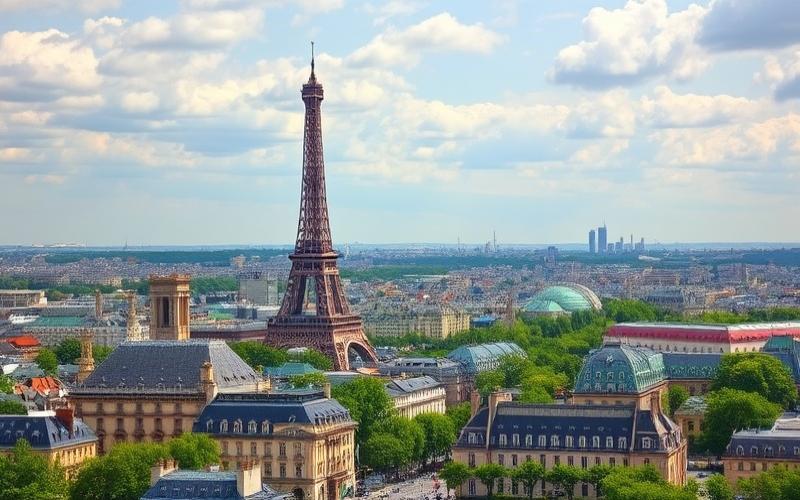
 Published on and written by Cyril Jarnias
Published on and written by Cyril Jarnias
Real estate investment in France remains an attractive option for both domestic and international investors in 2025. Despite recent economic fluctuations, the French property market continues to demonstrate its resilience and growth potential. In this article, we will explore the reasons for investing in French real estate, current price trends, available housing types, the most attractive areas, as well as practical aspects for foreign investors.
Discover other articles about French real estate potential:
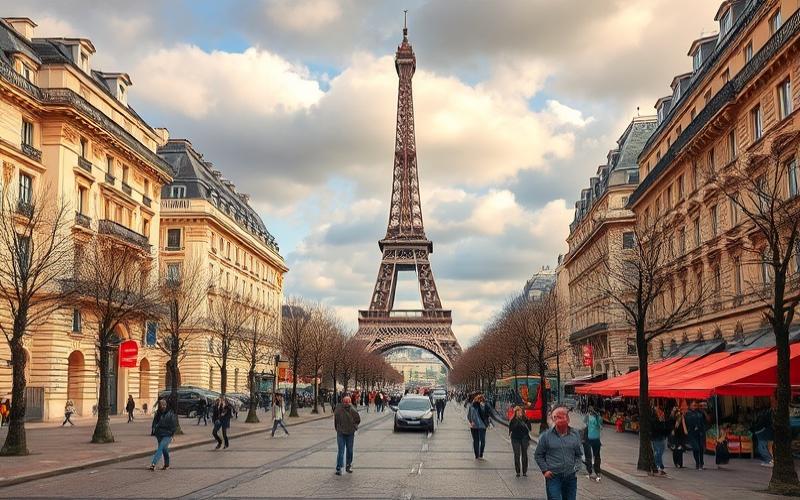

The French real estate market is currently undergoing a significant transformation period, marked by changes in buyer preferences, evolving prices, [...]


The French real estate market is renowned for its stability and attractiveness, drawing numerous domestic and international investors. However, it [...]


Real estate investment in France remains a safe bet despite market fluctuations. With interest rates stabilizing and strong rental demand [...]
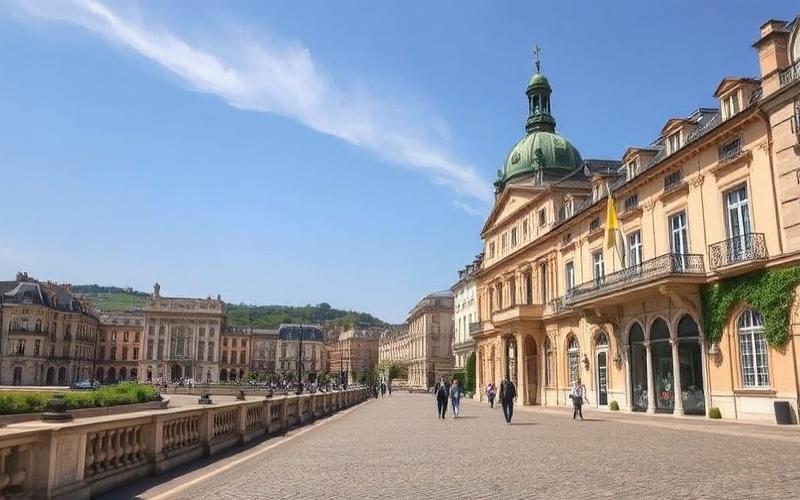

Real estate investment in France attracts many foreigners, whether residents or non-residents. However, obtaining real estate financing in France may [...]


Tourism plays a crucial role in the French economy and exerts considerable influence on the country’s real estate market. With [...]
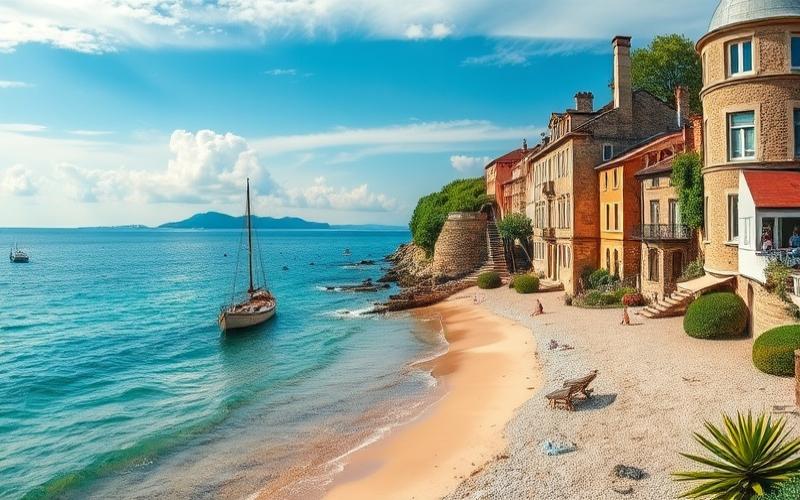

Purchasing real estate in France is a dream for many foreigners, drawn by the charm of historic cities, beautiful landscapes, [...]
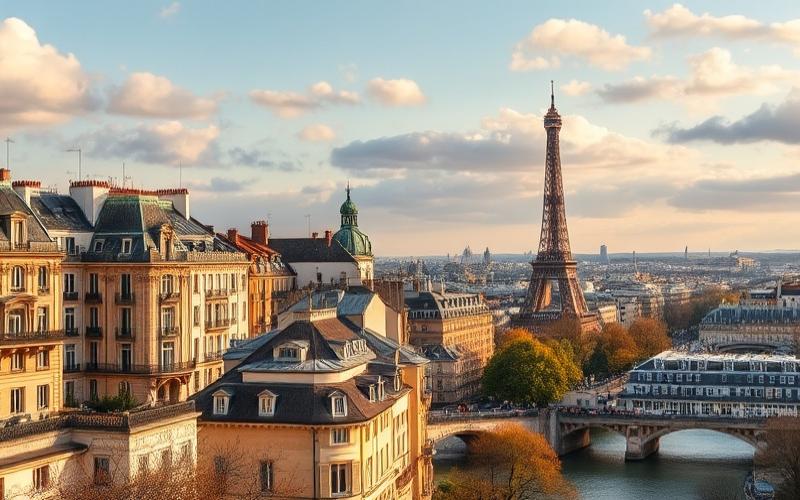

The French real estate market is undergoing a transitional period in early 2025. After a slowdown phase due to rising [...]
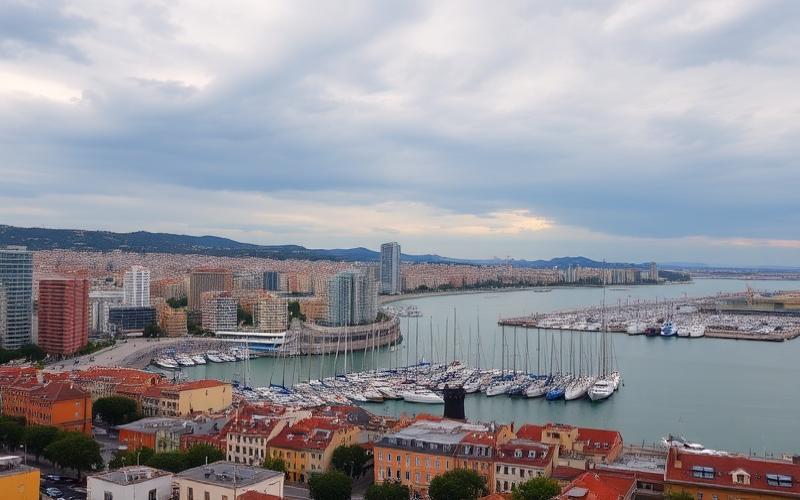

France stands at the dawn of a true urban revolution. Ambitious and innovative projects are emerging across the country, reshaping [...]
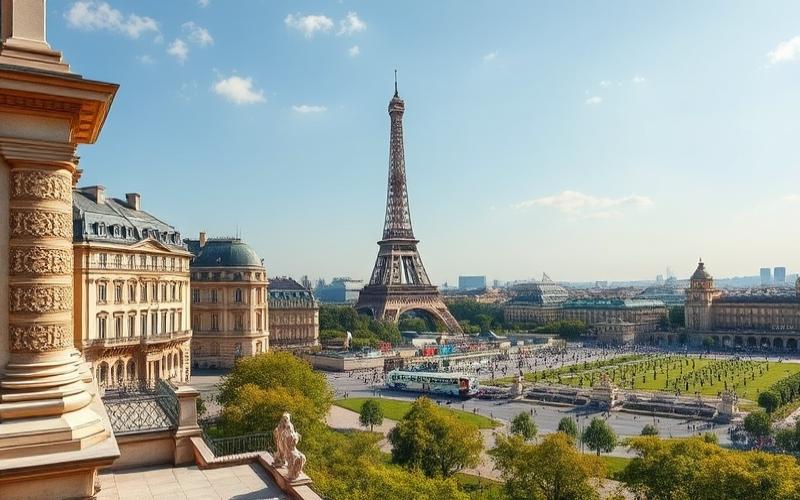

Purchasing real estate often represents the most significant investment of a lifetime. In France, where the property market is dynamic [...]
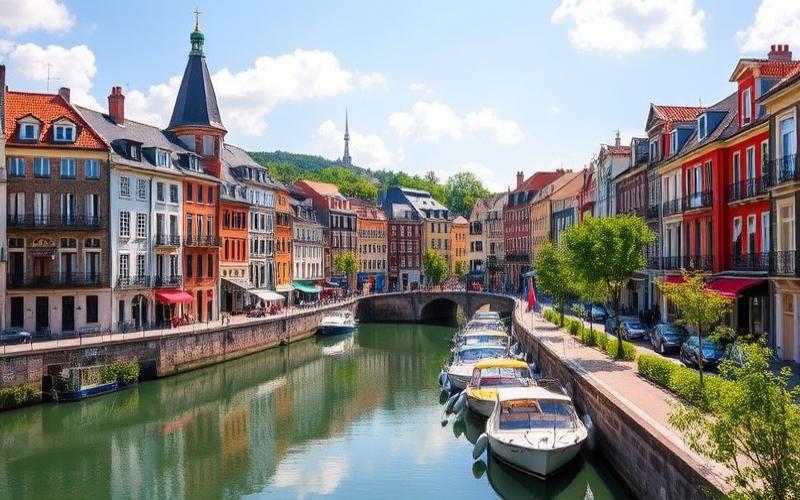

Real estate investment in France remains an attractive option for many investors, both domestic and international. This appeal is largely [...]
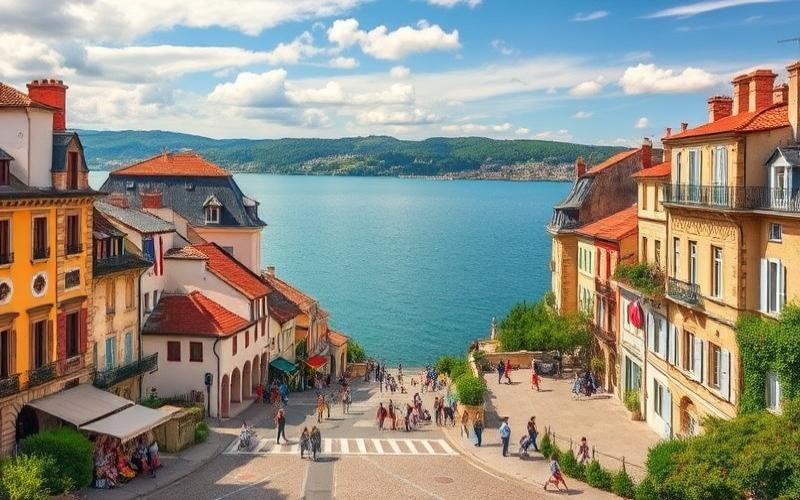

Purchasing real estate in France is often considered a once-in-a-lifetime investment. However, this complex process can be fraught with pitfalls [...]
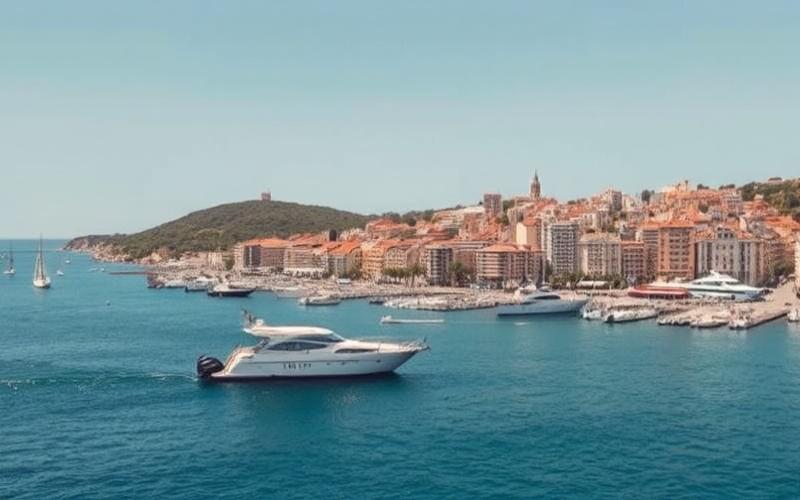

France, a country renowned for its art de vivre, cultural heritage, and gastronomy, has long attracted wealthy investors from around [...]
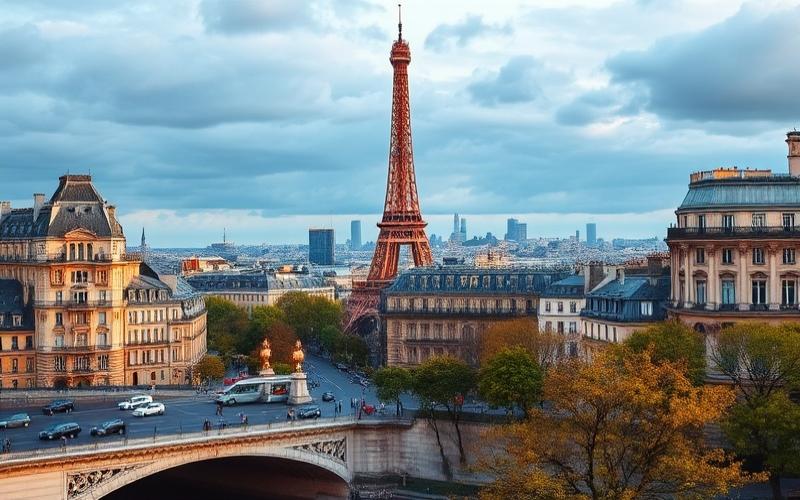

French real estate is attracting more and more international investors seeking diversification, yield, and tax optimization. Whether you want to [...]
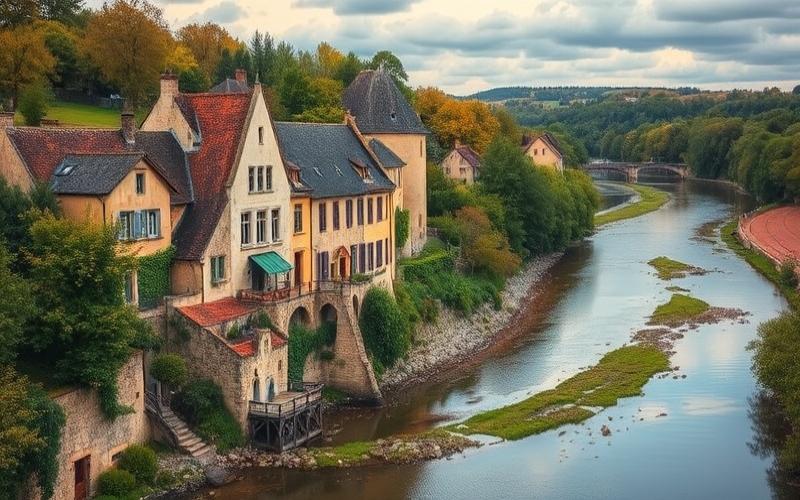

Property renovation in France has become a major issue, both for homeowners seeking to improve their living environment and those [...]


Commercial real estate in France offers attractive investment opportunities, despite a changing economic landscape. This dynamic sector is increasingly attracting [...]
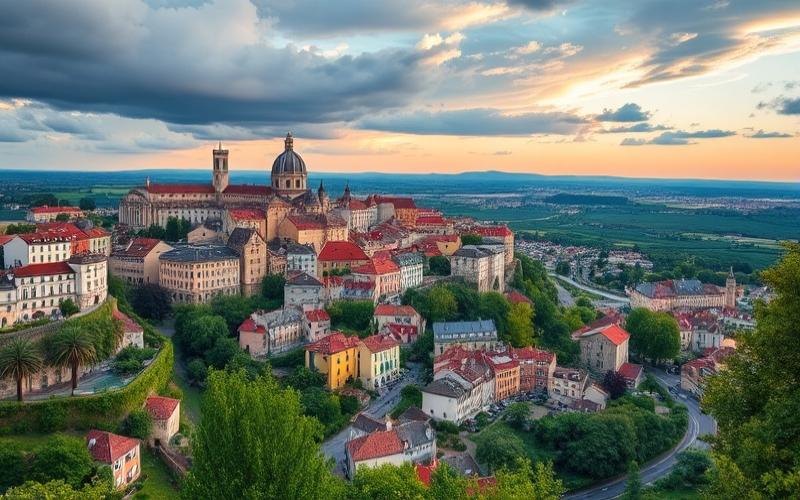

Long-term real estate rental in France can prove to be a profitable and secure venture for property owners. However, it’s [...]


Selling a property quickly in France can seem like a significant challenge, especially in an ever-changing real estate market. However, [...]
France: A Safe Haven for Real Estate Investment
The appeal of French real estate remains strong in 2025. Several factors contribute to making France a preferred destination for real estate investors:
1. Economic and political stability: France benefits from a diversified economy and a stable political system, providing a secure environment for long-term investments.
2. Dynamic rental market: Rental demand remains strong in major cities and tourist areas, ensuring regular income for property owners.
3. Wealth appreciation: French real estate has historically weathered crises well, with a long-term appreciation trend.
4. Recognized quality of life: France attracts many expatriates and foreign retirees, creating constant demand for quality properties.
5. Diverse opportunities: From Parisian studios to provincial castles, and tourist residences on the French Riviera, the French market offers a wide variety of investment options.
Good to know:
France regularly ranks among the most attractive destinations for real estate investment in Europe, particularly due to its economic stability and quality of life.
Overview of French Real Estate Prices in 2025
The French real estate market in 2025 presents a mixed situation, with significant variations depending on regions and property types. After a period of price correction in some major cities, stabilization or even a slight recovery is being observed in several metropolitan areas.
According to Meilleurs Agents data, here’s an overview of average prices per square meter in some major French cities in 2025:
- Paris: €9,293 for an apartment, €9,910 for a house
- Lyon: €4,727 for an apartment, €5,725 for a house
- Marseille: €3,578 for an apartment, €4,412 for a house
- Bordeaux: €4,415 for an apartment, €5,229 for a house
- Nantes: €3,384 for an apartment, €4,103 for a house
It’s important to note that these figures are averages and prices can vary considerably within these cities themselves, depending on neighborhoods and property characteristics.
The general trend shows price stabilization in major metropolitan areas, after several years of sustained growth. This evolution offers new opportunities for investors, with more affordable prices in some previously very tight sectors.
In rural areas and medium-sized cities, the situation is more mixed. Some regions, particularly those benefiting from good transportation access or tourist appeal, are experiencing moderate price increases. Others, less economically dynamic, offer investment opportunities at very attractive prices, but with more uncertain long-term capital gain potential.
Good to know:
Real estate prices in France remain generally high compared to the European average, but offer prospects for stability and long-term appreciation, particularly in major cities and tourist areas.
Types of Housing Sought by Investors in 2025
The French real estate market offers a wide diversity of properties, suitable for different investor profiles and investment objectives. Here’s an overview of the main types of housing available and their characteristics:
1. Downtown apartments: Highly sought after in major metropolitan areas, they offer good rental returns, particularly for short-term furnished rentals. Price example: A 25 m² studio in Paris’s 11th arrondissement can be negotiated around €250,000.
2. Single-family homes in suburbs: Ideal for families, they have seen growing demand since the health crisis. Price example: A 100 m² house with garden in the Lyon suburbs can be purchased for around €450,000.
3. Student residences: A safe investment in university cities, with constant rental demand. Price example: A 20 m² studio in a student residence in Montpellier can cost about €90,000.
4. Prestige properties: Castles, mansions, wine estates… These luxury investments attract wealthy international clientele. Price example: A renovated 500 m² castle with 10 hectares of land in Dordogne can sell for around €2 million.
5. Tourist residences: Very popular in beach or ski resorts, they offer interesting tax advantages. Price example: A 40 m² apartment in a tourist residence in Cannes can be offered for about €300,000.
The trend in 2025 shows growing interest in housing offering outdoor spaces (balconies, terraces, gardens) and for properties located in medium-sized cities offering better quality of life. Investors are also increasingly attentive to housing energy performance, a criterion that has become crucial with the strengthening of environmental regulations.
Good to know:
Social housing, although less known to private investors, can also represent an interesting opportunity. The PLAI, PLUS and PLS schemes offer tax advantages and stable rental demand, but require compliance with rent ceilings and tenant income limits.
The Most Promising Investment Areas in France
In 2025, several French regions and cities stand out for their attractiveness for real estate investment. Here’s an overview of the most promising areas:
1. Greater Paris: With the development of the Grand Paris Express transport network, many communes in the Paris suburbs are experiencing renewed interest. Montreuil, Saint-Ouen, and Pantin are particularly sought after for their proximity to the capital and their still affordable prices compared to inner Paris.
2. Lyon and its periphery: France’s second economic hub, Lyon continues to attract investors and tenants. The communes of Villeurbanne, Saint-Priest and Décines-Charpieu offer interesting opportunities with more affordable prices per square meter than in central Lyon.
3. The French Riviera: Still very attractive for international investors, the PACA region, and particularly cities like Nice, Cannes or Antibes, offers a dynamic market, driven by tourism and high-end clientele.
4. Bordeaux and its region: Despite a slowdown after several years of strong growth, Bordeaux remains a safe bet. Neighboring communes like Mérignac or Pessac are attracting more and more investors.
5. Nantes and the Atlantic coast: Nantes continues its progression, driven by its economic dynamism and quality of life. Coastal cities like La Rochelle or Les Sables-d’Olonne also benefit from growing appeal.
6. Strasbourg and Alsace: The European capital and its region offer interesting opportunities, particularly thanks to their strategic position at the heart of Europe.
7. Mountain resorts: The Alps and Pyrenees remain safe values for seasonal rental investment, with resorts like Chamonix, Megève or Courchevel at the top of the list.
The trend in 2025 shows growing interest for medium-sized cities offering a good balance between economic dynamism and quality of life. Cities like Rennes, Angers, or Grenoble are attracting more and more investors seeking attractive returns and long-term capital gain potential.
Good to know:
Tight zones, defined by law, often benefit from tax advantages for rental investment, such as the Pinel scheme. It’s important to research these opportunities before investing.
France vs. Its European Competitors: An Enlightening Comparison
To better understand the appeal of real estate investment in France, it’s interesting to compare it to other popular European destinations. Here’s a comparative overview:
1. Spain: The Spanish market generally offers lower prices than France, particularly on the Mediterranean coast. However, France’s economic and political stability is often perceived as an advantage.
2. United Kingdom: London remains a sought-after destination, but prices there are significantly higher than in Paris. Brexit has introduced some uncertainty, making the French market more attractive for some international investors.
3. Germany: The German market is known for its stability, with rental yields often higher than in France. However, rental rules are stricter there and capital gain prospects are less significant in some cities.
4. Italy: Italy offers interesting opportunities, particularly in major tourist cities. However, administrative complexity and economic instability can deter some investors.
5. Portugal: Very popular in recent years, particularly thanks to tax incentives for foreign retirees. However, prices have increased significantly in the most sought-after areas.
France stands out with a mature real estate market, stable and protective legislation, and long-term appreciation potential, particularly in major cities and tourist areas. Additionally, French quality of life, its efficient healthcare system and rich cultural heritage are major assets for attracting foreign investors.
Good to know:
France offers a good balance between investment security and return potential, making it a destination of choice for investors looking to diversify their real estate portfolio on a European scale.
Practical Guide for Foreign Investors in France
Good news for international investors: France imposes no major restrictions on property purchases by foreigners. Whether you’re a resident of the European Union or a third country, you can acquire property in France under the same conditions as a French citizen. Here are some key points to remember:
1. Purchase process: The process is similar to that followed by French buyers. It generally involves signing a preliminary sales agreement, followed by the authentic deed at a notary’s office.
2. Financing: French banks can grant real estate loans to non-residents, although conditions may be stricter. A larger personal contribution is often required.
3. Taxation: Non-residents are subject to specific tax rules, particularly regarding rental income tax and capital gains upon resale. Consulting a tax expert is recommended to optimize your investment.
4. Property management: For investors not residing in France, it may be wise to use a property management agency to handle rental and property maintenance.
5. Visa and residence: Buying property does not automatically grant the right to a visa or residence permit in France. However, there are investment programs that can facilitate visa acquisition for non-EU investors.
In 2025, France continues to attract many foreign investors, drawn by the stability of the French real estate market and long-term return prospects. Cities like Paris, the French Riviera and high-end ski resorts remain particularly popular with international clientele.
Good to know:
Some French regions, like Dordogne or Provence, are particularly popular with British and Northern European buyers, creating dynamic micro-markets with strong demand for character homes and rural properties.
Rental Returns: Promising Figures for 2025
Rental return is a key criterion for many real estate investors. In France, yields vary considerably depending on cities and property types. Here are some examples of gross rental returns observed in 2025:
1. Paris: The capital offers relatively low returns, between 3% and 4% on average, due to high purchase prices. However, rental demand remains very strong and long-term capital gain prospects are excellent.
2. Lyon: The Rhône metropolis shows more attractive returns, between 4% and 6% depending on neighborhoods. The city’s economic dynamism ensures sustained rental demand.
3. Marseille: Some neighborhoods in Marseille offer very interesting returns, reaching 7% to 8%, particularly in areas undergoing urban renovation.
4. Lille: The capital of Flanders presents average returns of 5% to 7%, with strong student demand supporting the rental market.
5. Bordeaux: Despite price increases in recent years, Bordeaux still offers returns between 4% and 5.5%, particularly attractive in developing neighborhoods.
6. Medium-sized cities: Cities like Reims, Angers or Rennes can offer returns above 6%, thanks to more moderate purchase prices and sustained rental demand.
It’s important to note that these figures are averages and returns can vary significantly depending on the chosen property and its precise location. Additionally, these gross returns don’t account for expenses, taxation, and potential renovation work.
The trend in 2025 shows growing interest in investing in medium-sized cities and the peripheries of major metropolitan areas, where returns are often higher. Investors are also seeking to optimize their returns by turning to strategies like furnished rentals or seasonal rentals in tourist areas.
Good to know:
Rental return isn’t the only criterion to consider. Investment security, capital gain potential and ease of management are also important factors to consider when choosing a real estate investment in France.
Conclusion: France, A Resilient and Promising Real Estate Market
Real estate investment in France in 2025 continues to offer great opportunities for savvy investors. Despite global economic challenges, the French market demonstrates its resilience and attractiveness, driven by sustained rental demand in major cities and tourist areas.
Key trends to remember for 2025 are:
- Price stabilization in major metropolitan areas, offering new investment opportunities
- Growing interest in medium-sized cities and peripheries of large cities, offering a better balance between return and quality of life
- Increased demand for properties offering outdoor spaces and good energy performance
- Attractive profitability prospects in some regions, particularly for furnished and seasonal rentals
- A stable and protective regulatory framework for investors, including foreigners
To succeed in real estate investment in France in 2025, it’s crucial to clearly define your objectives, carefully study local markets and surround yourself with competent professionals. Whether you’re aiming for rental returns, long-term capital gains or simply acquiring a pied-à-terre in France, the French real estate market offers a diversity of options to meet your expectations.
Good to know:
France remains a safe value for real estate investment in Europe, combining economic stability, recognized quality of life and unique cultural heritage that continues to attract investors and tenants from around the world.
Disclaimer: The information provided on this website is for informational purposes only and does not constitute financial, legal, or professional advice. We encourage you to consult qualified experts before making any investment, real estate, or expatriation decisions. Although we strive to maintain up-to-date and accurate information, we do not guarantee the completeness, accuracy, or timeliness of the proposed content. As investment and expatriation involve risks, we disclaim any liability for potential losses or damages arising from the use of this site. Your use of this site confirms your acceptance of these terms and your understanding of the associated risks.



